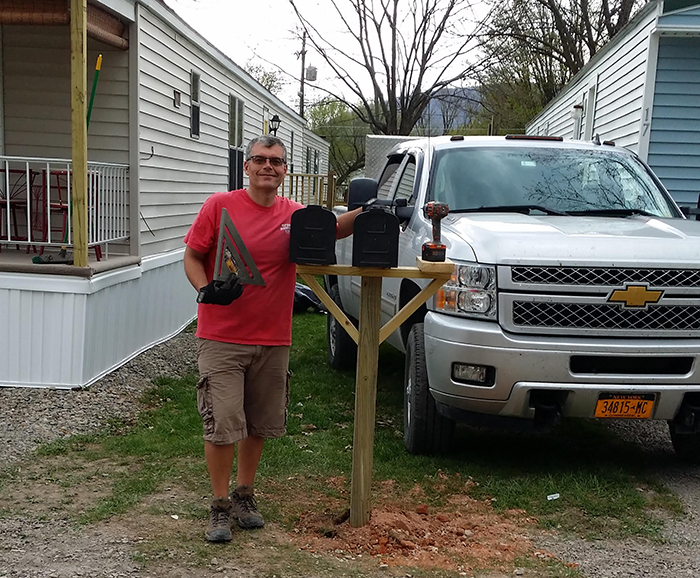Jeffrey Cook finds niche in mobile home park investing
1995 graduate is CEO of real-estate company Cook Properties NY

All of his housemates moving out ended up being one of the most fortunate things to happen to Jeffrey Cook, MPA ’95. The method he chose to singlehandedly cover the cost of the house they had been sharing sparked a multimillion-dollar real estate venture.
He’s currently CEO of Cook Properties NY, a family-owned and -operated real estate development company he founded in 1997. The company, based in Rochester, N.Y., owns a portfolio of mobile home parks, commercial office spaces and self-storage sites.
After receiving his master’s degree from Binghamton University, Cook returned home to the Rochester region to take a market research position and purchased a single-family home to share with two friends. When they left, he couldn’t carry the house costs alone, so he rented out the home and moved back in with his parents. With a steady, full-time job and several hundred dollars of rental profit each month, Cook hit the market.
“I started buying singles and doubles,” Cook says. “I’d pick them up for 20 or 30 grand, finance them and I kept accumulating them. When I got to six or seven houses, my mom asked when I was going to buy a home for myself. I bought a double for myself, and kept buying more properties. ... Eventually, I got to 100 apartments, and I quit my job to focus fully on real estate. I sold everything right before the crash in 2008.”
After the housing market tanked, Cook moved his business in a different direction, purchasing his first commercial property. He subsequently bought his first mobile home park and that’s when the real growth began. He now owns 32 parks, including one in Conklin, N.Y., about 10 miles from the Binghamton University campus in Vestal.
“Up until five years ago, my brother and I had grown this organically with our own money,” Cook says. “We fell into this [tremendous growth] backward. We put offers out on three or four properties, and they were all accepted. That’s not necessarily what we wanted, but they were good properties and we had friends and family who wanted to invest. They saw the success we had with the business, and we brought friends and family in to buy one property here, one property there.”
Because Cook was raising funds for private equity, he registered with the federal Securities and Exchange Commission, giving rise to the Cook Properties Fund 20, a private real estate equity fund aiming to acquire $65 million in mobile home parks across the state.
To put more of his chips in the mobile home space, Cook plans to exit his commercial investments. Calling mobile home parks a recession-proof investment might make it sound too good to be true, but Cook says the sector has performed well and has potential to deliver 10% or more in returns every year.
“A big problem with office space is that when you get a vacancy, it’s a big one and it takes 12 to 18 months to fill it,” Cook says. “One of the nice things about being in the mobile home business is that the residents are long-term. The mobile home is their home, so the people have been diligent in paying rent. We have not seen any decline in our collections during the whole pandemic.”
